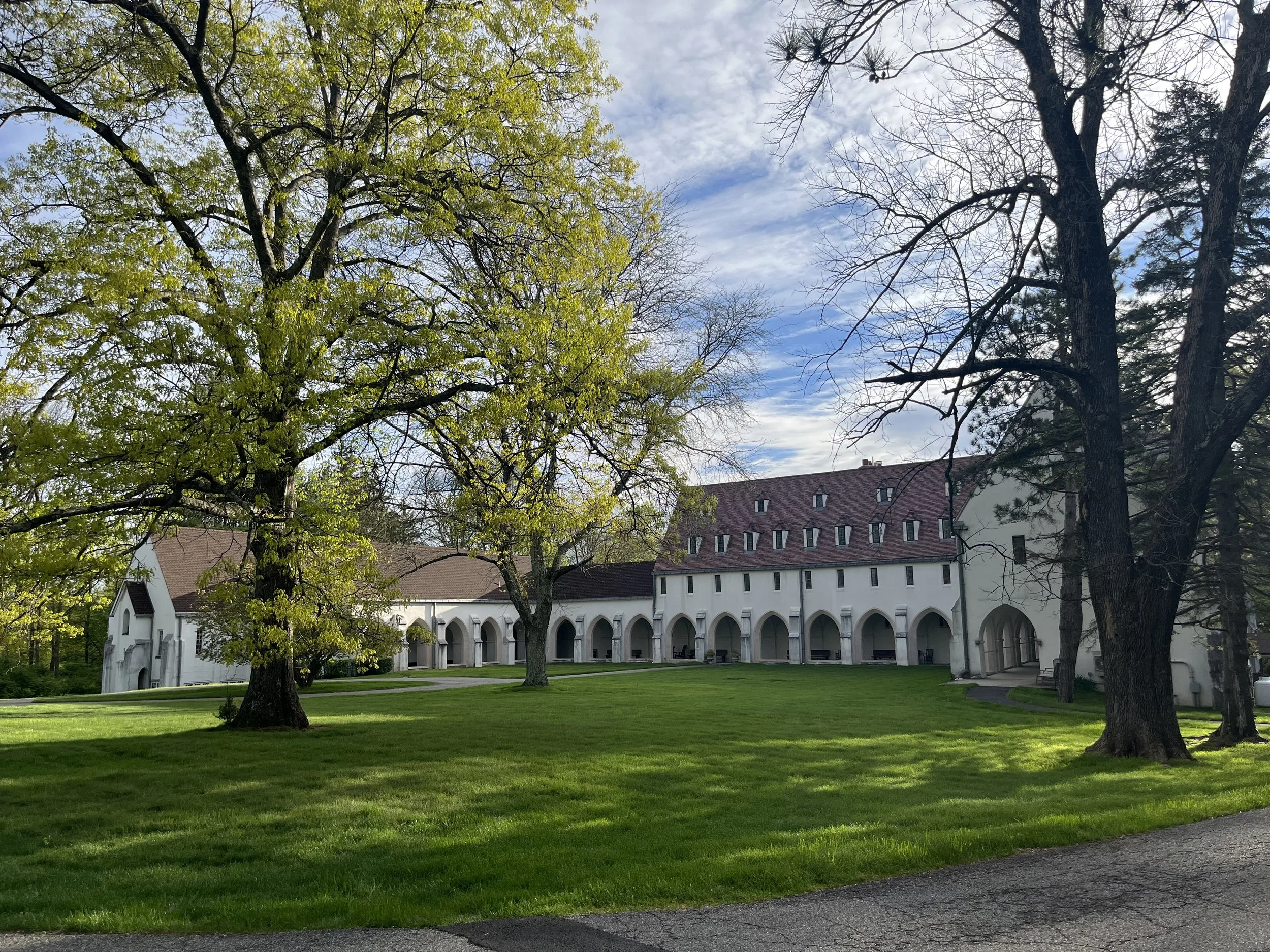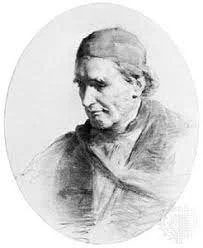As we continue our journey through Paul’s letter to the Church in Rome, I’ll begin today with the age-old axiom, “I have some good news and some bad news for you today.” And I’ll start with the bad news. Aren’t you glad you pulled yourself out of bed on this holiday weekend to come to church?
The bad news is that in our Gospel lesson today, Jesus tells his disciples – and that includes us – that “If any want to become my followers, let them deny themselves and take up their cross and follow me. For those who want to save their life will lose it, and those who lose their life for my sake will find it.”
Peter was scandalized by the idea that Jesus – who he had just moments before professed to be the “the Messiah, the son of the living God” – would undergo such a horrific humiliation, suffering, and death. It just didn’t add up for Peter.
So, Peter took Jesus aside “and began to rebuke him, saying, ‘God forbid it, Lord! This must never happen to you.’ But [Jesus] turned and said to Peter, “Get behind me, Satan! You are a stumbling block to me; for you are setting your mind not on divine things but on human things.’” These are pointed, harsh words to Peter, who Jesus had just moments before proclaimed to be the “rock” upon which his church would be built and awarded the “keys to the kingdom of heaven.”
Poor Peter went from being called the “rock” to being called “Satan” in a matter of moments. On a much smaller scale, I can relate to Peter, because I fall in and out of favor with my children several times a day. I can go from being their hero to “the worst dad ever” in a matter of moments.
What Peter is troubled by is that not only would Christ suffer, but so would his followers. Following Jesus was going to terribly costly for him. And again, if we are honest with ourselves, this news feels as bad for us as it did for Peter. In a country where the idols of prosperity, comfort, and power reign supreme, a message of “taking up one’s cross and suffering” flies in the face of our sensibilities.
In his reflection on today’s lectionary lessons, Andrew McGowan reminds us not to fall into the trap of believing that Jesus’ radical, scandalous call to discipleship is primarily a call to suffer. Nor are we to interpret our own suffering as being something that God gives us to test our faith – as if suffering was an entrance requirement or badge of honor for Christianity, with the end goal being simply to “suffer for the cause.”
Rather, McGowan says, the primary call to Christian discipleship is the call to love. And this love is far from being sentimental. Rather, the Christian call to love is terribly costly. Christ’s love indeed caused him to take up a cross and suffer a humiliating, shameful, death on a cross. It was this divine call to love the world that he created that drove Christ to the cross on our behalf; not the call to suffer. Indeed, God’s incarnation in Jesus Christ was first and foremost an act of love, with a mission to embody and share that love with the world. But of course, that sort of love brought about great suffering. Many of us here know on some level that the deeper we love, the deeper the potential for suffering will be.
In his interaction with his disciples in today’s lesson, Jesus is telling Peter and the rest of them that if they love in the way that Jesus calls them to love, indeed, they will suffer. The sort of love that Jesus is calling them to is the sort of love that is oftentimes offensive or scandalous to who have the most to lose.
So, what does loving in a way that leads to taking up a cross look like? Our lessons from Paul from last week and today give us some insight on what this sort of cruciform love might look like. Last week, he wrote,
“I appeal to you therefore, brothers and sisters, by the mercies of God, to present your bodies as a living sacrifice, holy and acceptable to God, which is your spiritual worship. Do not be conformed to this world, but be transformed by the renewing of your minds, so that you may discern what is the will of God-- what is good and acceptable and perfect.”
Notice the sacrificial language that Paul uses. Genuine, Christlike love isn’t sentimental, convenient, or self-serving. Christlike love always involves some sort of sacrifice – giving up something important – even your life – for the greater good of God’s kingdom.
In today’s lesson, Paul begins with some beautiful examples of what he understands Christlike love to look like when he writes,
“Let love be genuine; hate what is evil, hold fast to what is good; love one another with mutual affection…”
I think we can all get onboard with this sort of love. This portion of Paul’s letter to the Romans is oftentimes used by clergy as the blessing at the end of the worship service because it is so heartwarming. But they usually stop before the next part, which continues:
“Bless those who persecute you; bless and do not curse them….do not be haughty, but associate with the lowly…Do not repay anyone evil for evil…‘[I]f your enemies are hungry, feed them; if they are thirsty, give them something to drink…Do not be overcome by evil, but overcome evil with good.”
Now this is where the Christlike love to which we are called becomes more akin to a “living sacrifice.” This is when and where we begin to feel the weight of picking up and carrying the cross of Christ. Loving one’s enemies – feeding them, blessing them, not seeking vengeance on them… that is the Christlike love that both Jesus and Paul are calling us to.
But we must be careful not to read this ethical section of Paul’s letter to the Romans as being prescriptive. In other words, this isn’t a list that Paul made to serve as an entrance requirement to becoming a Christian. And this isn’t a “to-do” list for folks once they become Christians. This isn’t the measuring stick for eternal life.
Rather, this list is descriptive. In other words, as we live our lives in Christ, worshipping, praying, serving, and fellowshipping together in community as Christ’s one body with many members, we will find that Paul’s list describes the fruit that such a life in Christ will begin the bear. And this is God’s promise…this is the Good news that can be excavated from both Paul and Matthew’s rather harrowing texts today. No, we will not be immune from suffering if and when we choose to follow Christ. But the great Good News is that if we are willing to lose our life for Christ’s sake, ultimately, we will find it. We will experience the radical grace of “the peace of God which passes all understanding.”
The latest edition of The Mockingbird magazine came in the mail this week. The theme for this issue is “Mercy,” which was great timing for our scripture lessons this week. In it, Dianne Collard reflects on her long, painful journey towards forgiving the man who murdered her son. During her time of profound grief, she took a deep dive into Scripture, looking for answers, comfort, anything to bring her peace. In that search, she kept landing on texts about mercy and forgiveness. On the backend of her arduous journey to wholeness, she was able to reflect,
“This journey, as difficult as it has been, has taught me so much. I truly wonder if I could have understood and delighted in God’s mercy for me without experiencing what it took for me to forgive the killer of my child. I am far more aware of the cost of forgiveness and [God’s] love for me now that I have learned to express mercy and, as a result, have been blessed with love, grace, and freedom. It is not a lesson I would have chosen, but I am grateful for what God has taught me.”
Paul tells us that suffering for the sake of Christ includes the courage not to be “conformed to this world, but [to] be transformed by the renewing of [our] minds, so that [we] may discern what is the will of God-- what is good and acceptable and perfect.” By coming to a place of mercy and forgiveness rather than anger and retribution, Dianne Collard was not, to use the Apostle Paul’s words, “conforming to this world.” Instead, she allowed herself to be “transformed by the renewing of her mind so that she could discern the will of God.”
Let me make it clear that I by no means believe that God gave Dianne Collard that “cross to bear” to teach her a lesson about mercy and forgiveness. That would be cruel, absurd, and I would want no part of a God like that. Dianne Collard’s cross to bear was the horrific journey through inconsolable pain, grief, and suffering. I’m sure she felt at times like she was headed to Golgotha to die on that very cross that she was bearing. But by the grace of God, Dianne Collard found new life after her harrowing, cross-bearing journey.
This cross-bearing that comes through the counter-cultural call of Christian discipleship may not sound very appealing. But if we submit to the radical, scandalous love that Christ showed us on the cross, our hearts, our minds, our standard of living – our core values - will be profoundly changed. And when our values change, our suffering will be transformed – and seen in an entirely different light. By the grace of God, Dianne Collard’s world view – her values – changed over the course of her long, painful journey through unimaginable grief. Her suffering wasn’t eliminated, it was transformed.
God never promises us that our lives will be easy. Indeed, we all have had or will have our own crosses to bear during this earthly life. But God promises us that he will never abandon us; he will never forsake us. And our suffering will never be in vain. And as Paul wrote earlier in this same letter to the Romans, the promise of God is that “if we have died with Christ, we believe that we will also live with him.” Dianne Collard died with Christ the moment she found out about the death of her son. But she also rose with Christ when she experienced the profound grace of his forgiveness towards her, and when she was then able to offer her own forgiveness to the man who killed her son. The burden of anger had been released. She could finally rest in the peace of God that passes all understanding. Thanks be to God!










